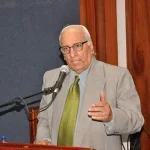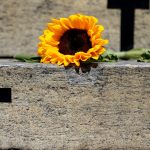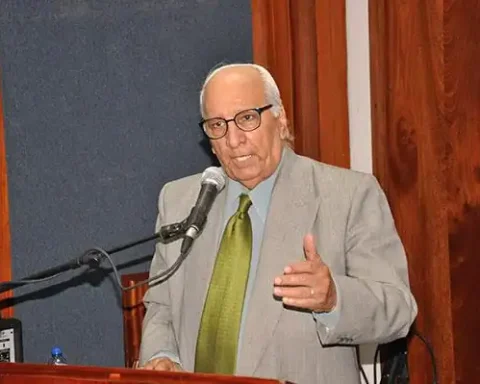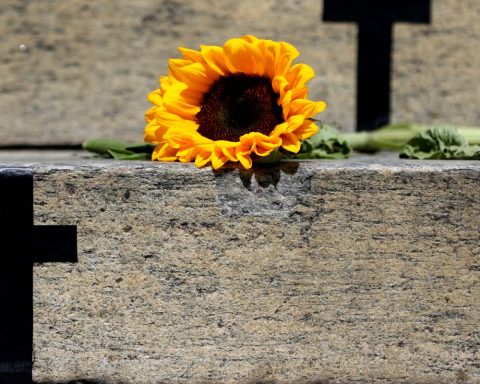The General Assembly will meet this Wednesday in an extraordinary session to discuss and pronounce on the veto that the Executive Power issued in the middle of this month on the law of forest soils. It will be the last parliamentary activity of the year and, in the foregoing, it offers a certainty: the presidential observation will remain firm.
The veto had been signed by President Luis Lacalle Pou a few hours after meeting with the leader of the Cabildo Abierto, Guido Manini Ríos, who tried in vain to convince him not to commit “The big mistake” to observe the project, which had been promoted by his party.
Beyond the fact that the result is known in advance, a session of this type involves certain regulatory details that make it very particular.
A first matter to take into account is the requirement of a composite quorum, which must be compulsorily conformed this Wednesday. The article 32 of the Regulations establishes that the General Assembly It will only be able to meet with half plus one of the total members of each chamber.
A) Yes, 16 senators and 50 deputies must always be present. If there is no such quorum, the session cannot begin. And if it starts and then that quorum is lost, it must be suspended. The procedure indicates that the missing legislators will be summoned to the room for one minute. If that does not work, the session must be adjourned.
For now and although they could bet on that, playing with the lack of a quorum is not in the plans. Both the Broad Front and the Open Council will have all their legislators in the room.
“Consistency requires us to be present and to defend at all costs what we have always upheld”, said to The Observer lobbying senator Guillermo Domenech. “There is no room for anything else.” As he specified, the position of his party will be to defend the law that they tried to promote. And it will be under the same argument. “It would have been very good if the government accepted this project”, He said.
In his vision, behind the initiative was the interest of “thousands” of people, not just small and medium agricultural producers. “This is of interest to the baker, the barraquero, to everyone who lives in the villages of this social network”, Held. Domenech considered that, if afforestation advances, that social fabric will be turned into a void. “Unfortunately we will not have votes to lift the observation. But they are the rules of the game ”, said the senator.
When consulted, he considered “very difficult” that, in a political gesture, his party defines voting alongside whites and colorados in support of the veto.
The two majorities
Cabildo Abierto and the Frente Amplio do not meet for the time being special three-fifths majority necessary to lift the presidential observation. Assuming that 130 legislators attend, with 69 combined votes they would be far from the 78 necessary to override the veto. The fewer legislators present, the fewer votes will be needed for that goal.
But they are also in a position to prevent whites, colorados and independents from forming a majority in support of Lacalle Pou’s decision. Thus, with 61 votes between deputies and senators, the rest of the political system would be eight votes below the alliance between lobbyists and Frente Amplio.
In the opposition it is assumed that there will not be the support required by the Constitution to lift the veto. However, the reading of the Broad Front is that the Executive Power will not have majorities in Parliament to defend the observation either. Senator Alejandro Sánchez (MPP) told The Observer that in this Wednesday’s session it will be clear a conflict between both powers of the State.
As specified, the Frente Amplio will revolve its arguments around the “enormous mistake” that the government committed to center the veto in legal aspects, in a “weak” attempt to justify its position on the future of afforestation.
Sánchez questioned that the Executive veto has used as an excuse the freedom of business or the threat of possible lawsuits against the State by large investments in the forestry sector. In his view, neither of the two premises is true. “The government hides behind these arguments to ultimately defend forest companies”, He said.
Thus, the session will end with an ambiguous result: the position of lifting the veto would be imposed by a simple majority, but it would not reach the special majority to do so, so the presidential observation would remain firm.
The Magna Carta provides that, in these cases, the legislators’ vote is nominal. Each one must express himself or herself and their names and foundations will be registered. There is a political agreement so that only the members of the Livestock commissions of both chambers intervene.
Appeal to the Presidency
The National Commission for the Defense of Water and Life, together with Redes Amigos de la Tierra and the Movement for a Sustainable Uruguay (Movus) presented this Monday in the Presidency of the Republic an appeal for annulment due to unconstitutionality of the decree that the Executive Power issued in the middle of this month, introducing new rules in the forestry sector.
In the writing, to which he agreed The Observer, The complainants argue that the government should have complied with Article 47 of the Constitution and, before issuing the decree, have convened civil society for discussion and definition. It should have been that way, they say, due to the “great implications” that the regulations will have on the country’s water resources.
“This decree was an attempt by the Executive Branch to frustrate the vote on a law that limited tree plantations for industrial purposes to priority forestry areas”, he reminded himself. The appeal questioned that the decree presents, as an internationally proven norm, the Classification by land use capacity of the United States Department of Agriculture (USDA).
“The introduction of this classification serves as a pretext to redefine the forest areas of Uruguay, explicitly stating that they will go beyond what has been defined up to the present,” affirm these organizations.
Today 4.2 million hectares are under forest priority. According to the appeal, the decree raises that surface by 25%. “Under the cloak of environmental requirements the decree, instead of reducing, increases afforestation”, it is stated.
The complainants also note that government regulations state that forestry activities have a direct impact on hydrographic basins, thereby acknowledging that they have issued national policy regulations on water. In this regard, the appeal recalled that the 2004 national plebiscite expressly establishes that, in such decisions, civil society must participate.
If the claim is unsuccessful, the organizations behind this initiative announced that they will appeal to the Administrative Litigation Court.

















